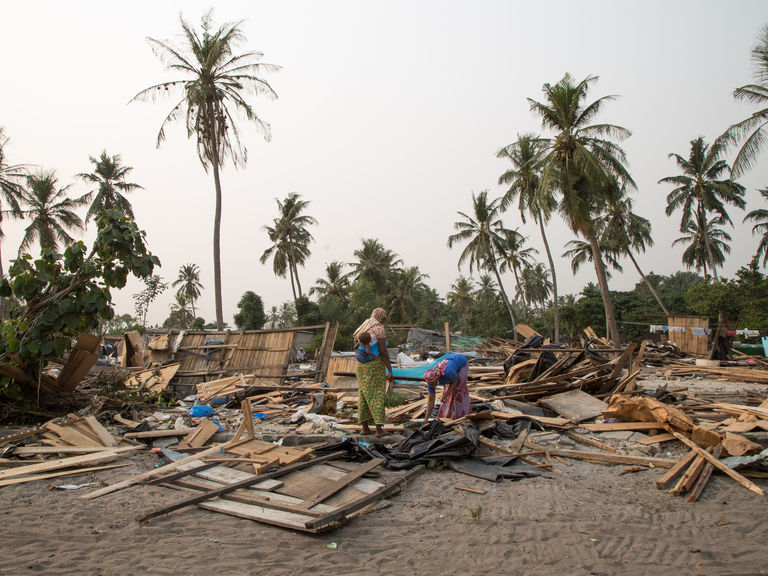Project Detail: Our Right to Stay
Contest:
Swiss Storytelling Photo Grant 9th
Brand:
LuganoPhotoDays
Author:
Isabel Bonnet
Status:
Selected
Project Info
Our Right to Stay
As Cote d'Ivoire's economy continues to grow, entire neighbourhoods are being demolished – and residents have nowhere to go. The clash of new infrastructure plans and the surge in house destructions and forced evictions is resulting in thousands of Ivorians being left homeless.
This is not the story of a video going viral nor the one of an unprecedented event that shocked many. This is the story of a widespread, repeated and accepted violation of people’s human rights in Cote d’Ivoire. Alassane Ouattara is the first president to govern after years of political instability and civil wars in Cote d’Ivoire. For the optimists, he will be remembered as the president who boosted the economy by building new infrastructures and for inviting Chinese and French companies to invest. But for some, destruction is all he represents.
On July 2, 2018 at 5am, people from the Abattoir neighborhood, at the heart of the capital city of Abidjan, woke up with the smell of tear gas. Several caterpillars approached their homes and started destroying them one by one. In only a few hours, an entire neighborhood vanished. This would have been national news, but it was not extraordinary. Abidjan has about 5 million inhabitants, but in 2019, the Minister of Construction, Housing and Urbanization announced that 1,2 million houses in 132 “precarious districts” would be demolished. This is roughly one fifth of the population being sentenced to homelessness.
Forced evictions and house destructions are not new to the population. Ever since Alassane Ouattara became president, there has been an increase in speed and intensity in forced evictions. Their main targets are local markets and marginalized neighborhoods. Though some recent house destructions were done to build new projects such as a metro and two bridges, the reason for demolishing most households remains unknown. Only a few have received some sort of compensation.
Sandrine spent months preparing for her final exams, the French Baccalaureate, under the roof of her small house in Vridi, one of Abidjan's precarious neighborhoods. It was 5 a.m. when she arrived at the test center that would determine her successful highschool graduation. Her phone rang: it was her mom. "Come back home," she told her. "They will tore our house down." By the time she returned home to collect her belongings, her entire neighborhood had been razed to the ground.
Some people were still inside their home when it got destroyed. Others lost consciousness after inhaling tear gas. According to the UNHRW, “forced evictions are a gross violation of human rights, in particular the right to adequate housing” (Resolution 1993/77). Because the guidelines on forced evictions remain the only written rules and regulations, there is no national policy preventing these governments from violating international human law during forced evictions.
It's been five years since Sandrine's neighborhood in Abidjan was demolished and the citizens still don't know why they were evicted. After spending four years working at a gas station and living under an improvised roof on the ruins of her former house, Sandrine died last year of an unknown illness.


















